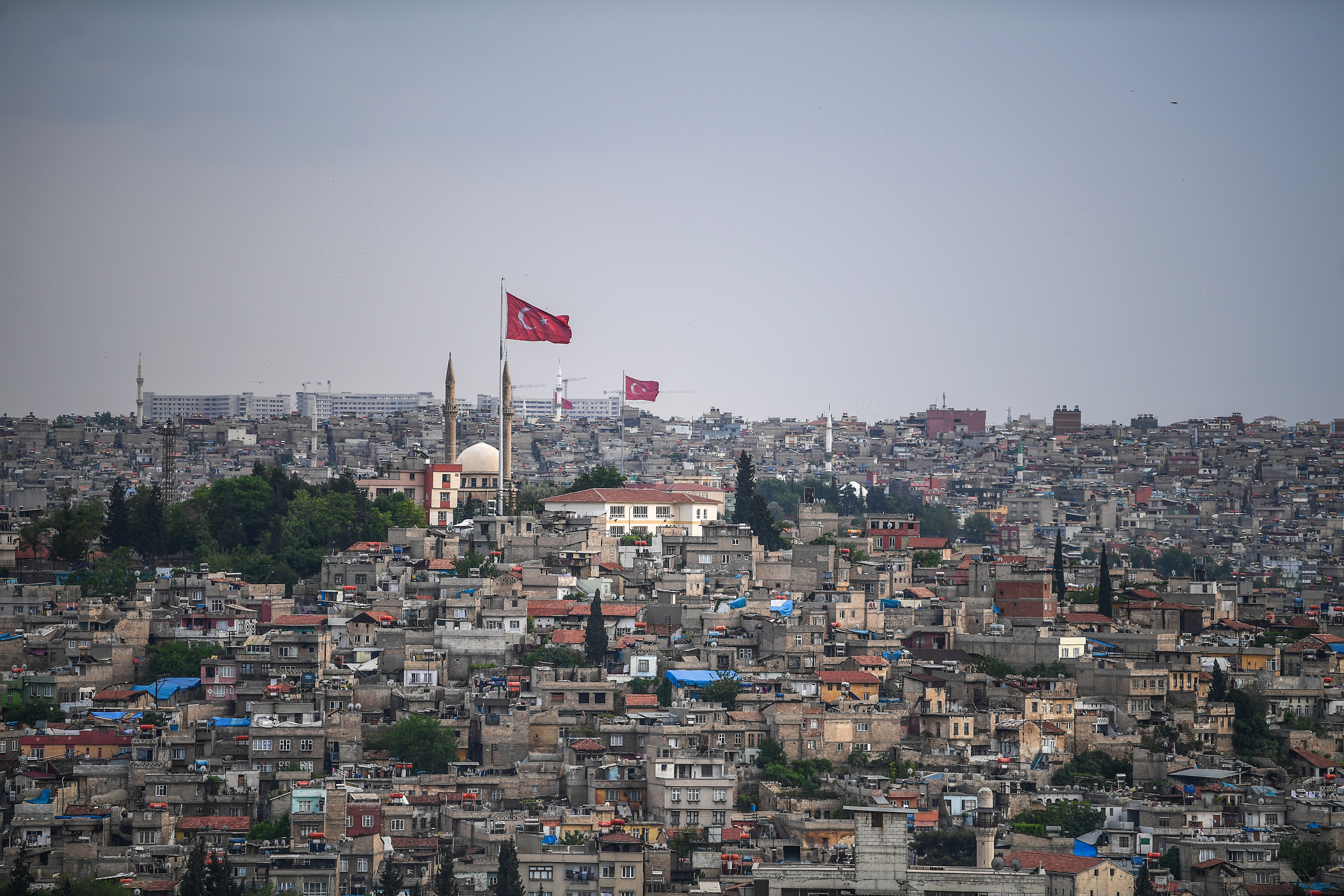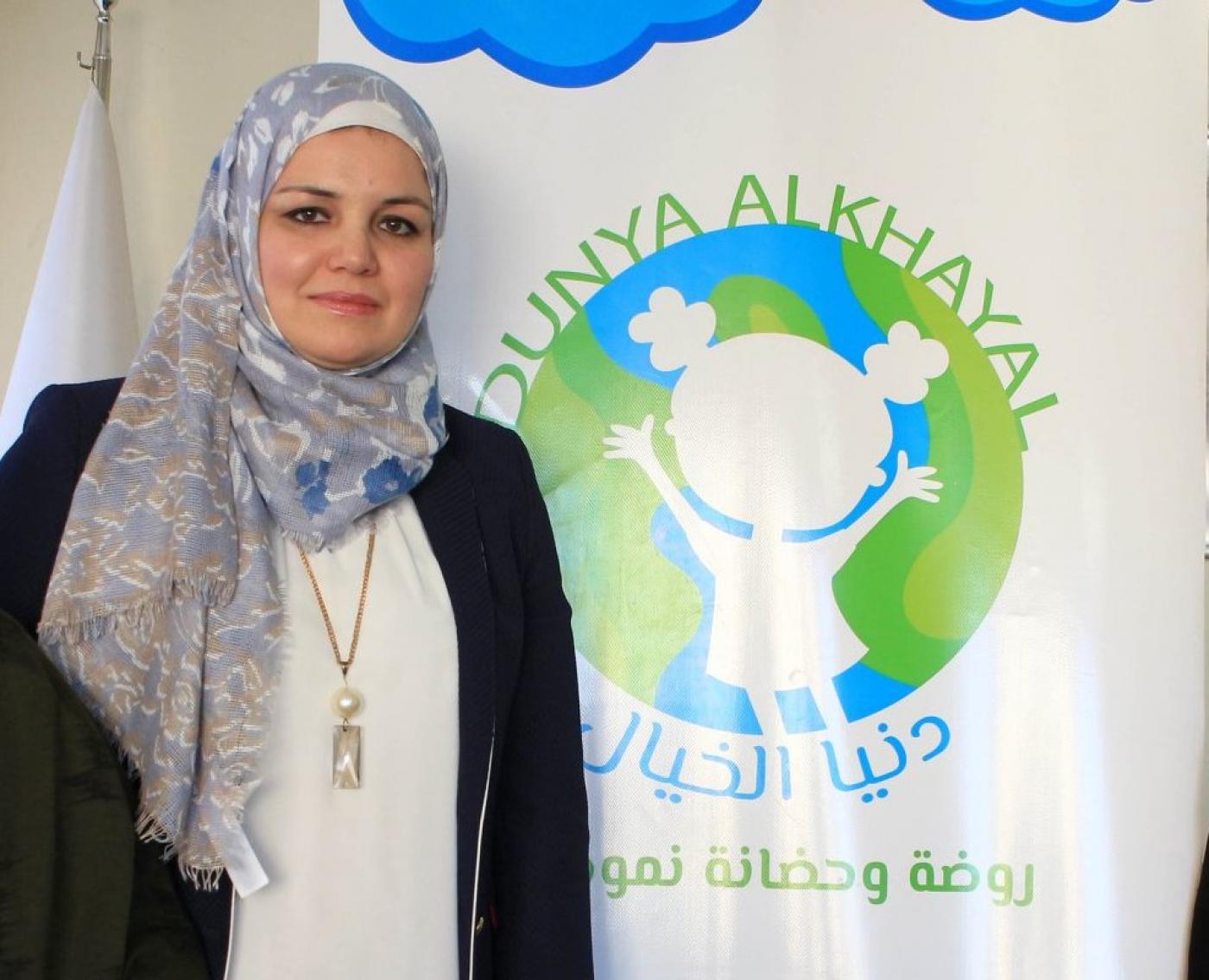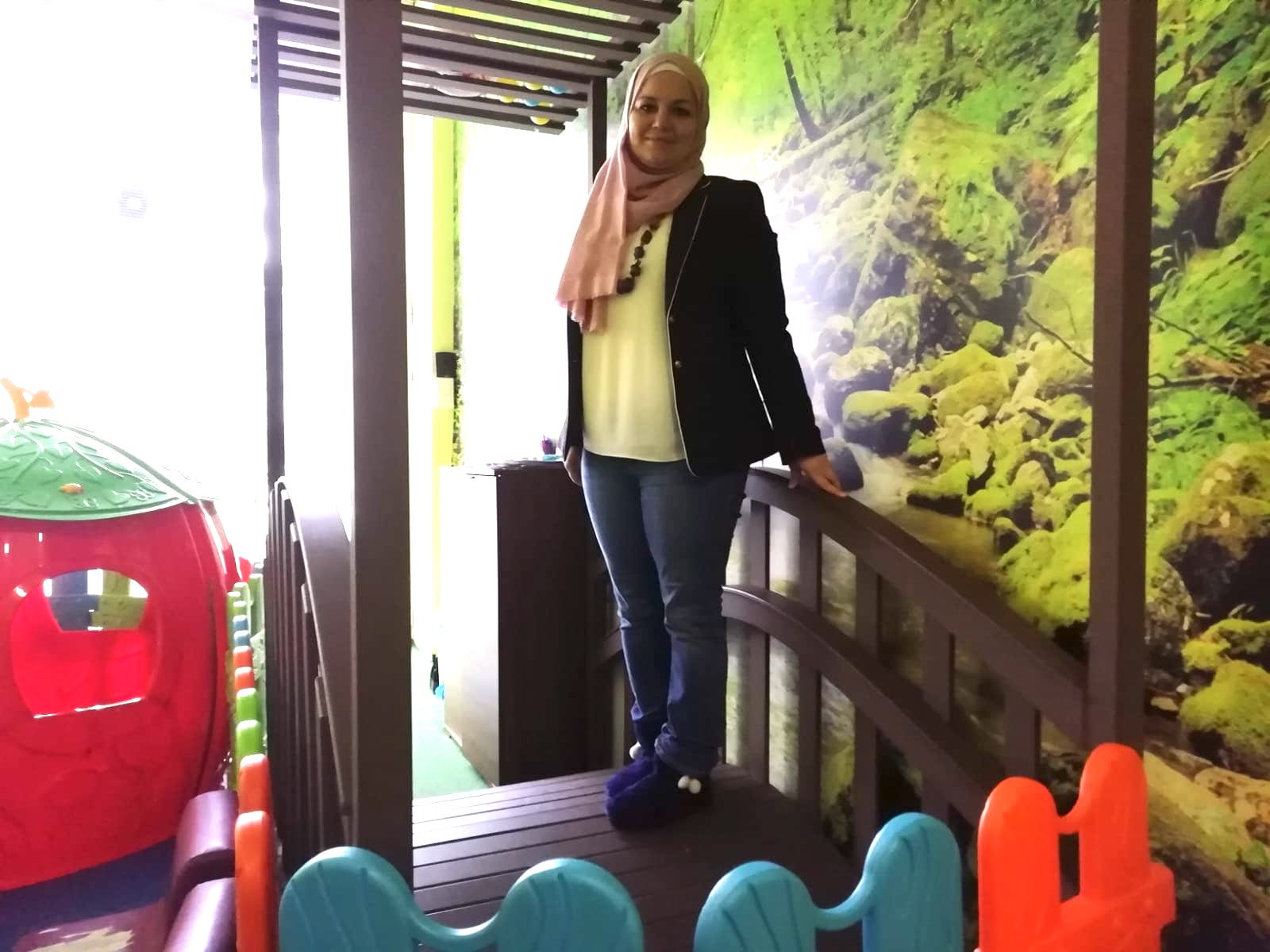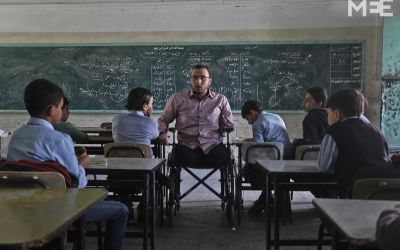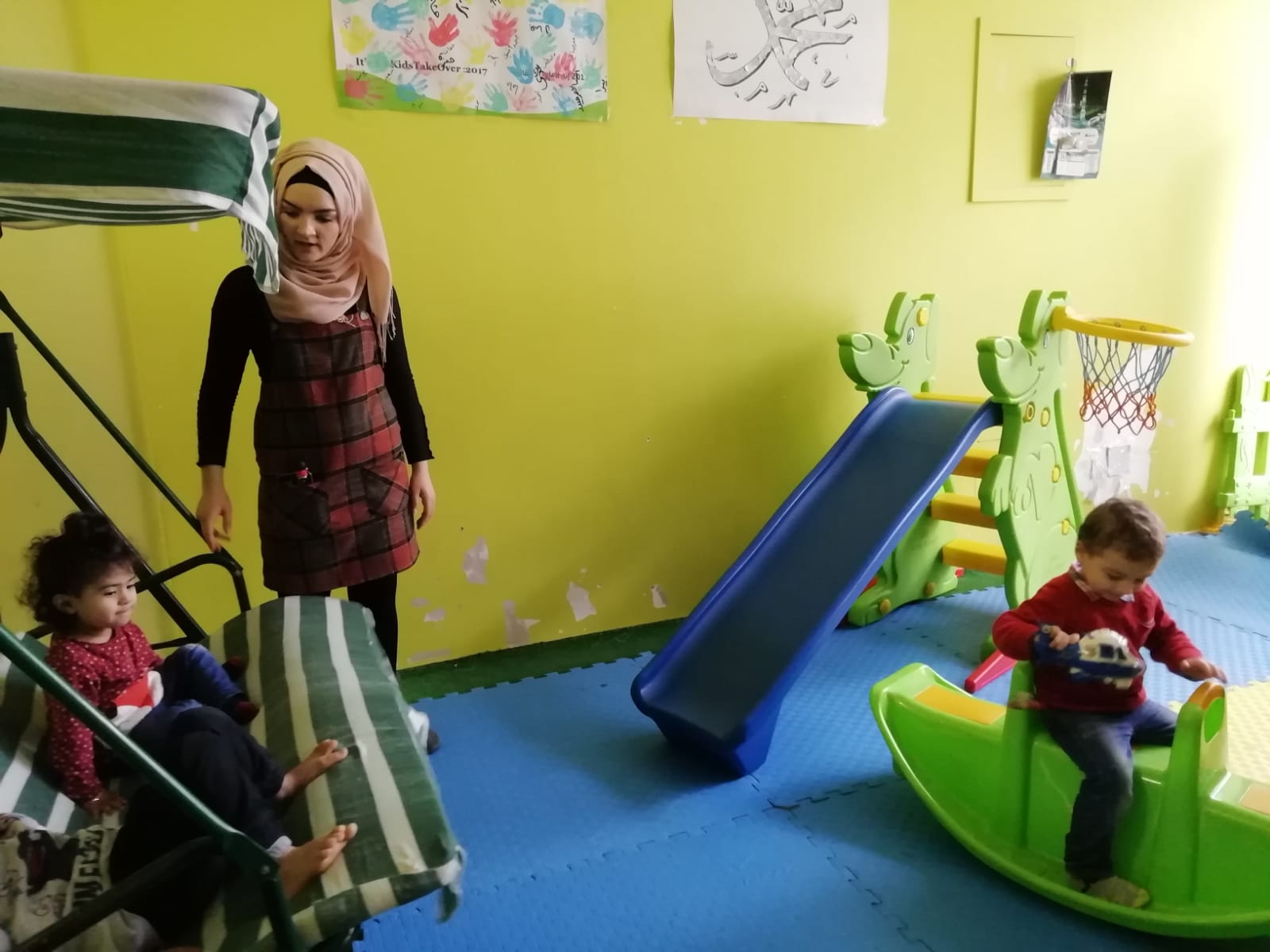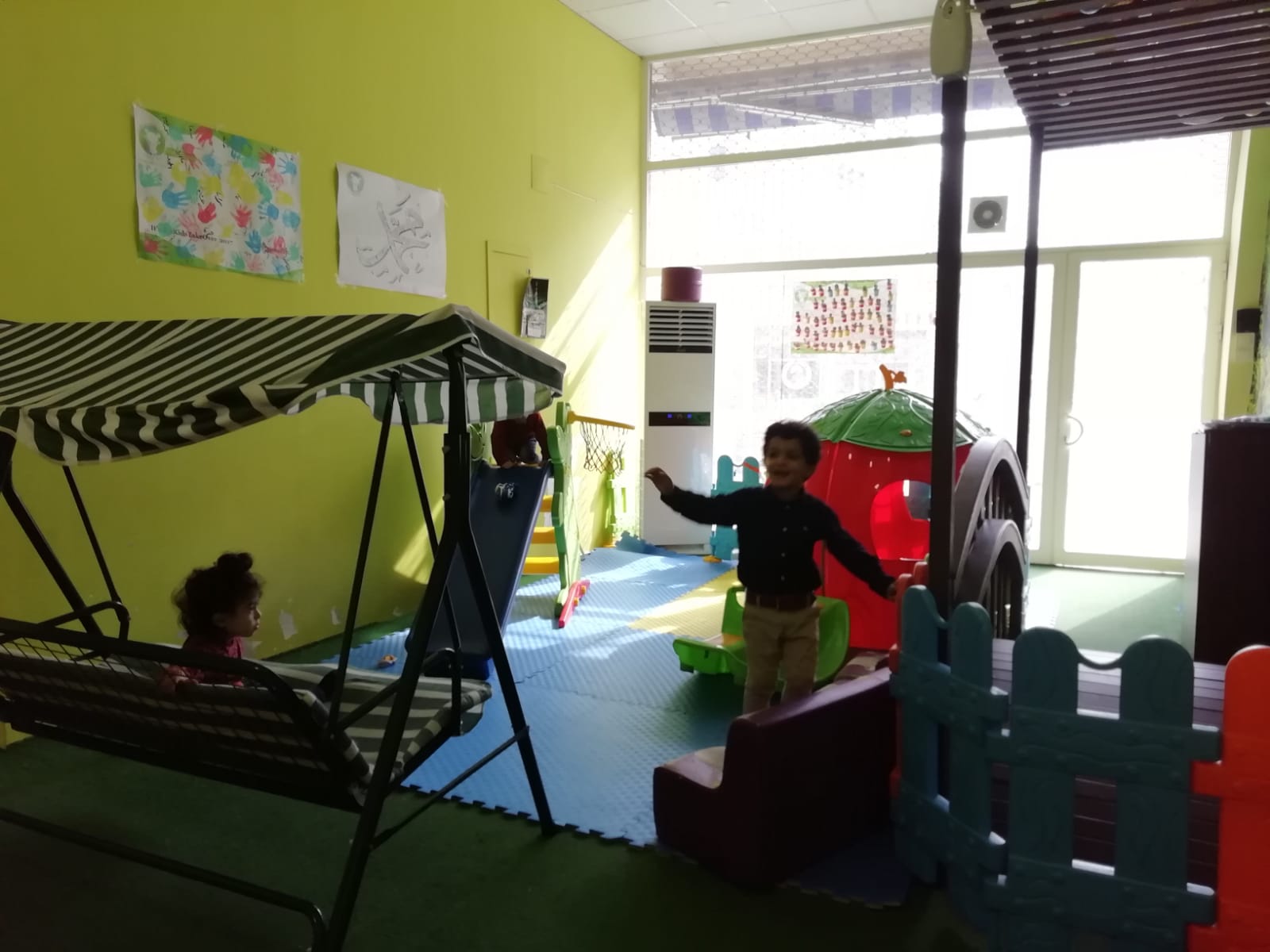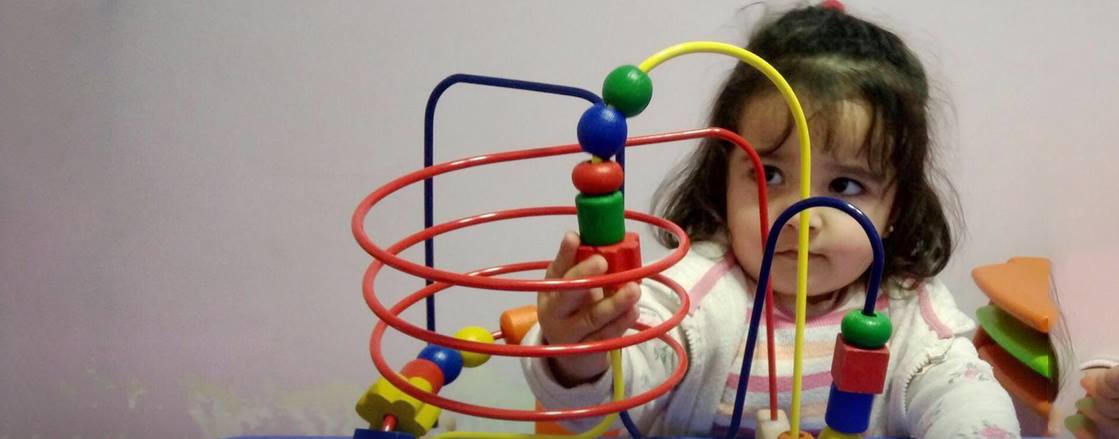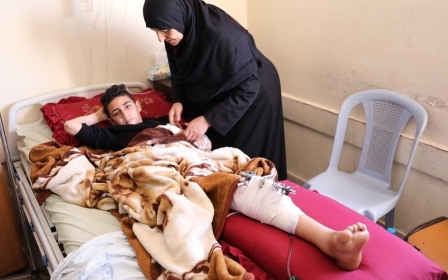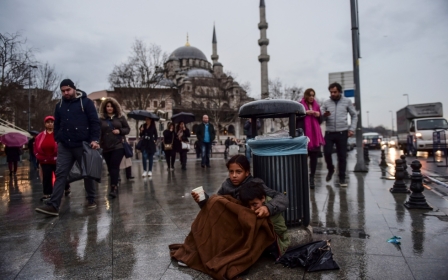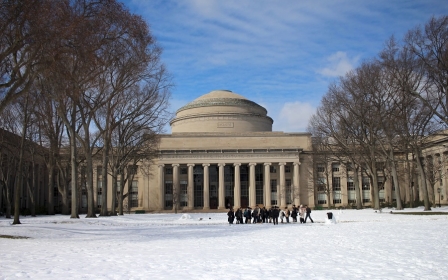A Syrian woman's answer to refugee childcare in Turkey
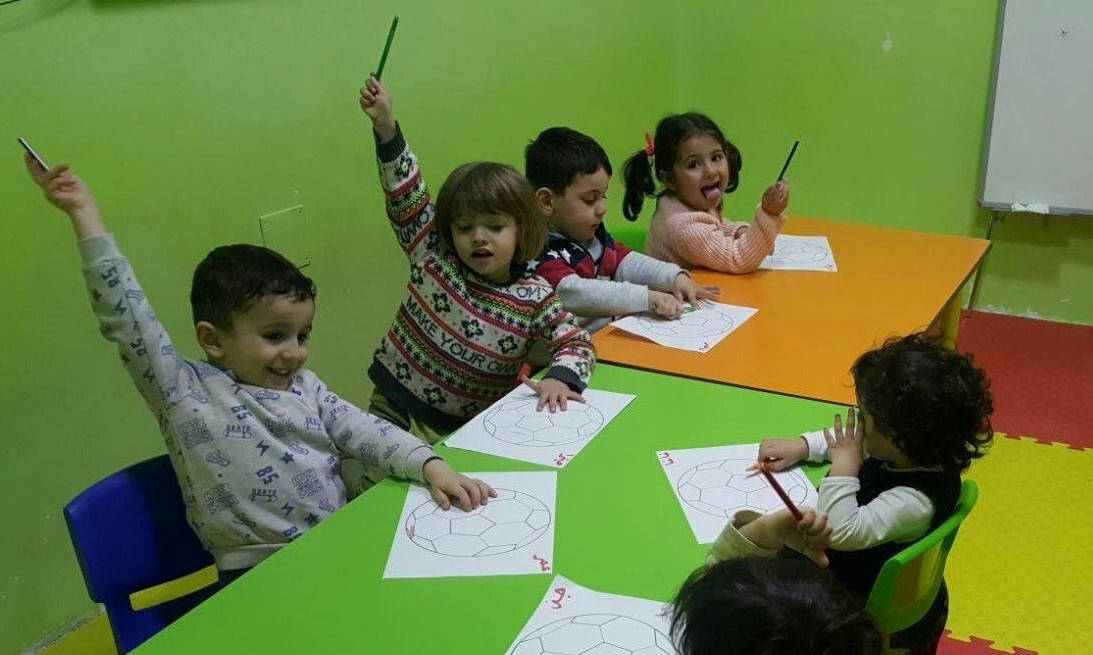
When Dania Abdulbaqi had to flee her hometown of Hama in 2012, she knew her life was going to change forever.
But she did not expect this would include changing her career goals as well. In her native Syria, Abdulbaqi, 35, used to work as a civil engineer, conducting a quiet and simple life.
'We need to pass on the memory of a country fading away'
- Dania Abdulbaqi, Syrian entrepreneur
“Then the war began, and my husband suggested to temporarily relocate to nearby Turkey, looking for safety,” Abdulbaqi explains.
But the civil conflict did not come to the quick end they had hoped for, so the temporary stay in Turkey turned into what would become their permanent home.
Starting over
New MEE newsletter: Jerusalem Dispatch
Sign up to get the latest insights and analysis on Israel-Palestine, alongside Turkey Unpacked and other MEE newsletters
Abdulbaqi became one of the 3.5 million displaced Syrians now residing in Turkey.
After a brief, three-month period in Istanbul, her small family relocated to the south-eastern city of Gaziantep, only an hour drive from the Syrian border.
Since the beginning of the conflict, this city’s streets began filling with Syrian businesses, mainly restaurants and food shops. Although there are no official numbers to date, in the past eight years economists estimate around 10,000 of them have sprung up all over Turkey.
The majority of these businesses, however, are a result of Syrian professionals having a hard time finding formal work in their field of expertise in a country with a different language and different labour laws.
'I love the sense of community created by a refugee woman helping other refugee women'
- Yara Kurdi, daycare worker
Gaziantep currently hosts over half a million Syrian refugees, making it harder for them to integrate within the saturated local economy.
But that did not stop Abdulbaqi from waking up every morning, for months, to look for a job in the engineering field that would best suit her skills.
Kids in tow
“It was hard. I didn’t speak the language, and no studio would hire a woman refugee. But most of all, the hard part was having to carry my children around town with me to interviews, employment centres, and Turkish classes,” Abdulbaqi says.
Eventually, she had to enrol her two sons at a public Turkish daycare centre, even though those are usually less accessible to Syrians, as they aren’t part of mandatory education.
Chatting with fellow Syrian mothers, Abdulbaqi spotted a trend. Women were concerned about their children because they either had to look after them during the day, give up on finding a job or leave them at Turkish kindergartens when possible, despite concerns regarding a lack of Arabic education, potential marginalisation, and even their children's safety.
According to Abdulbaqi, Syrian parents like to be able to check on their children during the school day. Back in Syria, teachers were always available to comfort worried parents. But in Turkey, if parents call, they say they rarely even get anyone who will pick up the phone.
“I realised I had my own project: helping other mothers who, like me, are torn between the need to work and their children’s guardian role. As a refugee mother myself, I understand that struggle and thought I had the right knowledge to help,” Abdulbaqi explains. “It was a matter of turning that idea into a business and safe point of reference for our community,” she adds.
A comeback
From the very beginning, Abdulbaqi’s husband, Ahmad Boushi, 38, supported his wife’s efforts and encouraged her to contribute to both the wellbeing of the refugee community and her own.
“The first thought that came to my mind when she mentioned her idea was ‘Welcome back, Dania!’,” Bouchi laughs, explaining that his wife had been out of the workforce for four years and that it had affected her mental health.
'I feel secure to leave my kid here'
- Asmaa al-Hosain, Syrian engineer
After analysing the local education market, they planned on offering a clean and safe space with a curriculum that average Turkish public schools or migrant help centres do not offer.
The couple rented an old Turkish restaurant in Gaziantep's bustling neighbourhood of Gazimuhtarpasa, and after convincing friends and family of the solidity of their plan, they were able to get their support and financial help.
'Wonder World'
Renovating the space took Abdulbaqi back in time.
“I was very enthusiastic to use again my engineering skills for the first part of my project. I got to transform it into a cosy space, to make it into my wonder world,” she says, as her eyes light up.
Thanks to her attention to detail, the school was in fact named Dunya al-Khayal - Arabic for “Wonder World” - as a mark of Abdulbaqi's success in turning the old building into her dream space.
“The achievement I’m most proud of is the small bridge at the entry,” Abdulbaqi says.
“I spent lots of time trying to get the correct dimensions so that it could entertain visitors and kids, but also prevent the smaller ones from escaping.”
During the entire preparation period, Bouchi supported his wife by helping her find loans and funds, dealing with legalising the business and promoting it across the neighbourhood.
According to Bouchi, it’s not that common for Syrian men to support their wives’ entrepreneurial spirit, but he hopes that with time, this won't be such a rare example within their community.
Work opportunities
Today, almost three years after its opening, colourful walls, a cheerful doorbell tune and dozens of children shouting Arabic nursery rhymes - led by their teachers - welcome you upon entering Dunya al-Khayal.
So far, Abdulbaqi’s daycare has given employment opportunities to five women refugees. Among them is Rafah al-Shmet, 33, who has over 10 years of experience working as an English teacher in Syria.
But in 2016, when she fled her native Aleppo and settled in Gaziantep with her brother, she wasn’t able to find a job in her field.
“Turkish public schools wouldn’t hire me as I’m not a native Turkish speaker, and competition for education positions within international NGOs that have offices here is fierce,” al-Shmet says.
When Dunya al-Khayal opened its doors, she was given the opportunity to start over again, leaving the depression and anxiety of unemployment behind.
“Since around a year and a half, when I began working here, I started more and more to feel the responsibility of taking care of future refugee generations through my skills,” al-Shmet says.
While the kids laugh and play on the slides, another teacher, Yara Kurdi, makes sure they don’t fall and hurt themselves. A refugee from Damascus, she’s now the daycare’s Arabic teacher.
“I’ve been working here for a year and I love this place. It makes me feel safe and meaningful again, instead of wasting time at home, constantly waiting for something that never arrives,” Kurdi says. “I love the sense of community created by a refugee woman helping other refugee women. It shows how we can help each other.”
Setting an example
The daycare centre became a safe space for Syrian refugee children and their parents, but also an example for migrant women aspiring to improve their living conditions.
Although many refugee women from rural areas used to work mostly as caregivers and housewives back in Syria, the need to contribute to household income under conditions of displacement pushed many of them to become active workers and explore outside of these roles.
Still, refugee women setting up their own businesses rather than being someone else’s employee is a rare sight in this Turkish region.
“I think Dania set an example for female entrepreneurs in Gaziantep, and how to turn passion into real business,” Bouchi says proudly.
Abdulbaqi is making an effort to improve herself by attending conferences related to entrepreneurship, talking about her business to others and finding new, creative ways to promote it and adapt it to the local ecosystem.
Currently, Dunya al-Khayal hosts around 40 students as young as two months and up to six years old, most of them Syrians. The trilingual activities include helping kids speak through games, arts, Quran classes, a science lab and a "proper behaviour" class, inspired by the Japanese education system.
The main client target group is the Syrian displaced middle class that can afford Abdulbaqi’s services and who are trying to rebuild a normal life as refugees in a foreign country.
Trust
Youssef al-Mustafa, 45, signed up his two-year-old daughter Salam after hearing good things about it from other Syrian refugees.
“The education system here is the closest to what my daughter would’ve received in Syria, that’s what we wanted. In her first years, we wanted her to not lose the language and connections to Syria that she would’ve otherwise lost in Turkish schools,” al-Mustafa says.
Similar feelings are shared by Asmaa al-Hosain, a 34-year-old engineer who moved from Aleppo to Gaziantep in 2014. She’s happy to send her four-year-old daughter to a school run by a fellow Syrian refugee mother.
“I believe she understands the mothers’ concerns about their children. I feel secure to leave my kid here, and I feel here she can learn Arabic, her mother language, as well as other languages,” she says, adding that seeing a refugee woman thriving will motivate others to open their own businesses, or at least encourage them to think about it.
Holding onto Syria
It took some time, but today Abdulbaqi’s business is slowly growing, thanks to word-of-mouth recommendations but also effective social media management and promotion.
And even though the Turkish lira crisis isn’t making things easier, the entrepreneur’s main focus at the moment is helping her refugee community. Many of the children she looks after - including her own who also attend Dunya al-Khayal - were born in Turkey, or are too young to remember Syria the way her generation does.
Currently, the Turkish education system has slowly cancelled Arabic-only curriculums and has begun integrating Syrian children into full Turkish-speaking morning classes.
With this in mind, it became her goal to help them remember their homeland or learn their mother-tongue language, through class activities such as storytelling and sing-alongs.
“I want my children, and that of our community in Gaziantep, to not forget our roots, to remember where we come from. We need to pass on the memory of a country fading away. It’s my duty,” she concludes, as she helps a student blow his nose.
Middle East Eye delivers independent and unrivalled coverage and analysis of the Middle East, North Africa and beyond. To learn more about republishing this content and the associated fees, please fill out this form. More about MEE can be found here.


